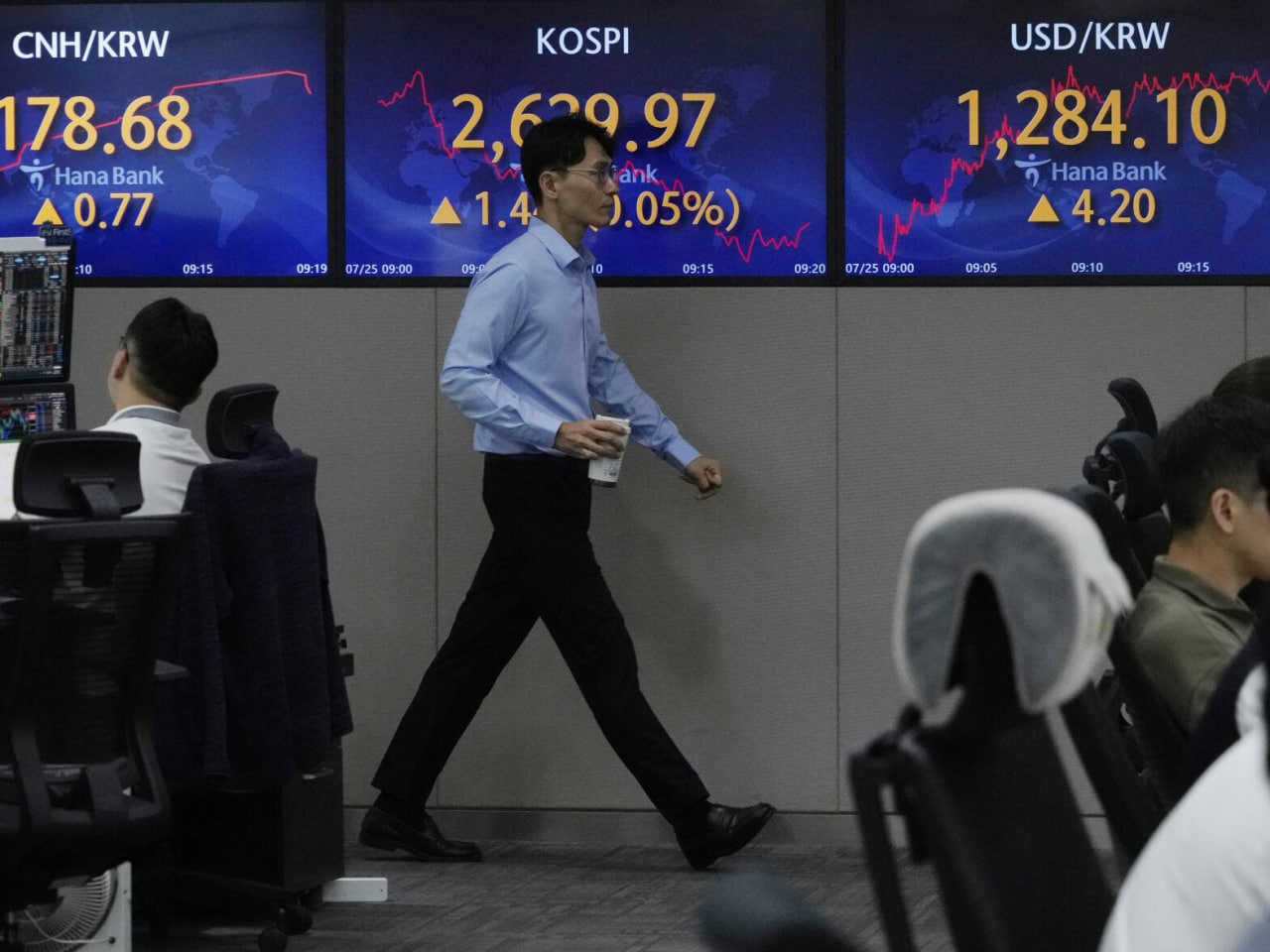Decoding the Indian Stock Market: A Deep Dive into Foreign Institutional Investor (FII) Activity
Meta Description: Understanding the recent FII sell-off in Indian stocks, analyzing its impact, exploring potential drivers, and forecasting future trends. Discover expert insights and actionable knowledge on the Indian equity market and Foreign Institutional Investor behavior.
Let's be honest, the global financial world can feel like a wild rollercoaster, especially when it comes to emerging markets. And India, with its vibrant economy and burgeoning potential, is often at the heart of the action. Recently, we've seen a significant shift – a major sell-off by Foreign Institutional Investors (FIIs) in the Indian stock market. This isn't just some dry statistic; it's a dramatic event with ripple effects across the country's economic landscape. Think about it: billions of rupees disappearing from the market in a single day. That's not just numbers on a screen; it's real money, impacting businesses, jobs, and investor confidence. This article cuts through the jargon and dives deep into the "why" behind this sell-off, exploring the potential causes, analyzing its implications, and ultimately, trying to make sense of it all. We’ll examine the data, dissect the narratives, and offer insights based on years of experience following this dynamic market. Forget dry economic analyses – we’re going beyond the numbers, exploring the human element of financial decision-making and its profound impact on a nation's economic trajectory. Get ready to understand not just the what, but also the why, the how, and the what next of this significant FII activity. Prepare to become more than just an informed observer; prepare to become a savvy navigator of the Indian stock market.
Foreign Institutional Investor (FII) Activity: Unveiling the Recent Sell-Off
The National Securities Depository Limited (NSDL) recently reported a significant net sell-off of ₹484 billion (approximately $5.8 billion USD) in Indian equities by global funds in a single trading day. Wow! That's a huge chunk of money, and it immediately raises several critical questions. What triggered this dramatic shift? What does it signify for the future of the Indian stock market? And most importantly, what can investors do to navigate this turbulent climate?
Let's break down this situation step-by-step, acknowledging that this is a complex issue with no single, easy answer. We need to examine various interconnected factors to gain a comprehensive understanding.
Global Macroeconomic Headwinds
One key driver behind the FII sell-off is undeniably the global macroeconomic environment. Think about soaring inflation in many developed economies, aggressive interest rate hikes by central banks (like the US Federal Reserve), and the ongoing geopolitical uncertainty stemming from the Russia-Ukraine conflict. These factors create a climate of risk aversion, pushing investors to move their capital from emerging markets – like India – back to perceived safer havens such as US treasury bonds. It's a classic case of "flight to safety." This isn't just speculation; countless financial news outlets and reports from reputable organizations like the IMF corroborate this trend.
Domestic Concerns
It isn't just the global picture; domestic factors within India also play a crucial role. For example, concerns about inflation, rising interest rates in India itself, and the performance of certain key sectors can influence FII sentiment. Even subtle shifts in government policy can impact investor confidence and trigger capital outflows. This highlights the interconnectedness of global and domestic economic forces.
Sector-Specific Performance
The performance of specific sectors within the Indian economy also influences FII investment decisions. While some sectors might be thriving, others might be underperforming, leading to targeted selling in particular areas. This requires a nuanced understanding that goes beyond broad market indicators. Analyzing sector-specific trends is crucial for a complete picture.
Valuation Concerns
FIIs are constantly evaluating the valuations of Indian stocks. If they believe that the market is overvalued, they might initiate sell-offs to lock in profits or reduce exposure. This is a rational investment strategy, especially in a volatile global environment. Independent market analysts often publish valuation reports, providing further insight into this dynamic.
Currency Fluctuations
The fluctuating value of the Indian Rupee against other major currencies, notably the US dollar, also plays a significant role. A weakening Rupee can negatively impact returns for FII investors, potentially leading to capital repatriation. This is a critical consideration for understanding FII investment decisions.
The Psychology of the Market
Let's not forget the human element. Market sentiment is highly influenced by investor psychology – fear, greed, and herd behavior all play a part. A significant sell-off by one major FII can trigger a cascade effect, leading to further selling by other investors, exacerbating the initial decline. This is why market timing is, at best, an inexact science.
Strategic Asset Allocation
FIIs constantly adjust their portfolios based on strategic asset allocation models. A shift in their global investment strategy might lead to a reduction in their exposure to the Indian stock market, regardless of the Indian market's specific circumstances. This underscores the global nature of financial markets.
Navigating the Volatility: Strategies for Investors
So, what's an investor to do amid this volatility? Firstly, don't panic! While the recent FII sell-off is significant, it's essential to maintain a long-term perspective. Short-term market fluctuations are normal, and a well-diversified portfolio can help mitigate risk.
Here are some key strategies:
-
Diversify your portfolio: Don't put all your eggs in one basket. Spread your investments across different asset classes, including equities, bonds, and potentially real estate or other alternative investments.
-
Focus on long-term goals: Don't let short-term market movements derail your long-term investment strategy. Stay disciplined and stick to your plan.
-
Conduct thorough research: Before making any investment decisions, conduct thorough research and seek professional advice if needed. Don't rely solely on hearsay or market rumors.
-
Monitor market indicators: Keep an eye on key macroeconomic indicators, both globally and domestically, to gauge the overall market sentiment.
-
Consider dollar-cost averaging: This involves investing a fixed amount of money at regular intervals, regardless of the market price. This strategy helps to reduce the impact of market volatility.
-
Stay informed: Keep abreast of market trends and news by relying on reputable financial sources.
Frequently Asked Questions (FAQs)
Q1: What are FIIs?
A1: FIIs are foreign institutional investors, such as mutual funds, pension funds, and hedge funds, that invest in the securities of a country other than their own.
Q2: Why do FIIs invest in India?
A2: FIIs are attracted to India's strong economic growth, large and growing population, and relatively young workforce. However, global and domestic factors strongly influence their investment decisions.
Q3: Is this sell-off a sign of a broader market crash?
A3: It's impossible to predict the future with certainty. While the sell-off is a significant event, it's too early to definitively say whether it signals a broader crash. Careful analysis of multiple factors is essential.
Q4: Should I sell my Indian stocks?
A4: The decision to sell your Indian stocks depends on your individual risk tolerance, investment goals, and investment timeline. Consider consulting a financial advisor. Panic selling is rarely a good strategy.
Q5: What are the potential long-term implications of this sell-off?
A5: The long-term implications are uncertain. However, it could potentially lead to a correction in the market, creating opportunities for long-term investors. Alternatively, it might signal a temporary setback before further growth.
Q6: Are there any opportunities arising from this sell-off?
A6: Some investors see this sell-off as a potential buying opportunity, especially for those with a long-term investment horizon and a strong risk tolerance. However, it's crucial to conduct due diligence before making any investment decisions.
Conclusion
The recent FII sell-off in the Indian stock market is a complex event driven by a confluence of global and domestic factors. While the short-term impact can be unsettling, maintaining a long-term perspective and a well-diversified investment strategy are crucial. The situation underscores the importance of thorough research, careful analysis, and professional advice when navigating the complexities of global financial markets. Understanding these dynamics is key not just to protecting your investments but also to gaining a deeper understanding of the global economy. Remember, the market is a dynamic entity; understanding its nuances and adapting your strategy accordingly is the key to success.



